Examining the Book of Isaiah 4
Mike Ervin
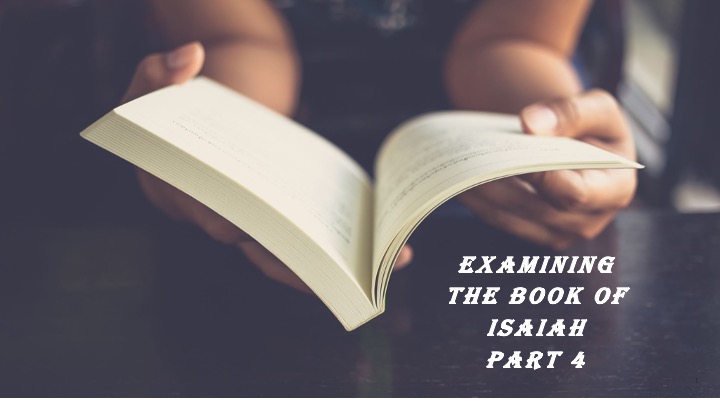
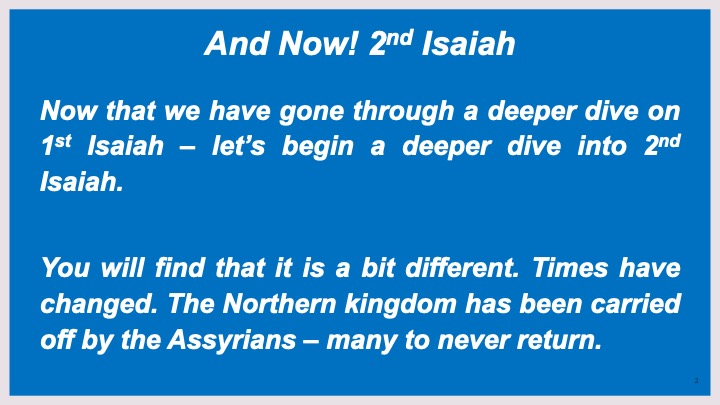
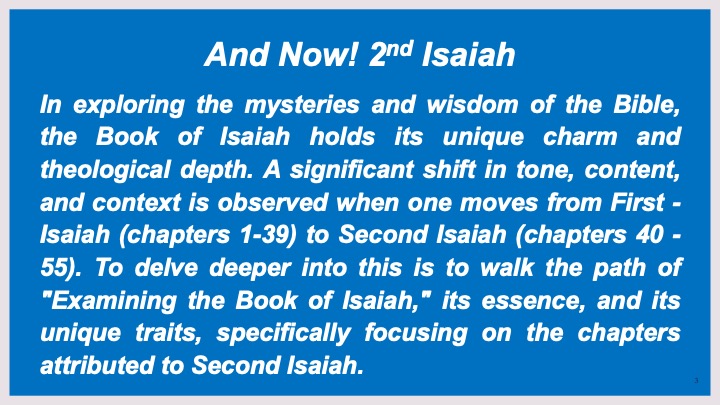
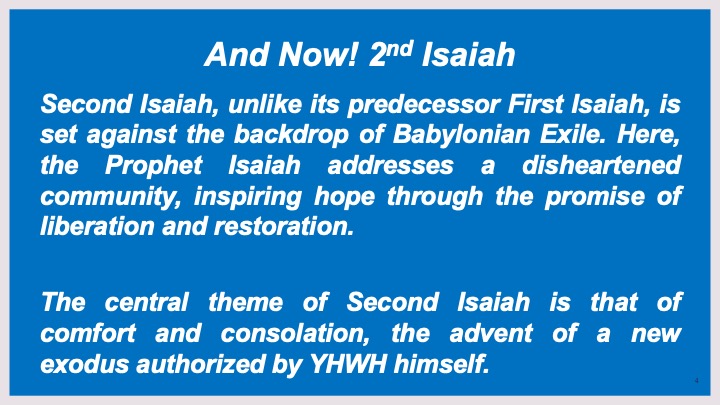
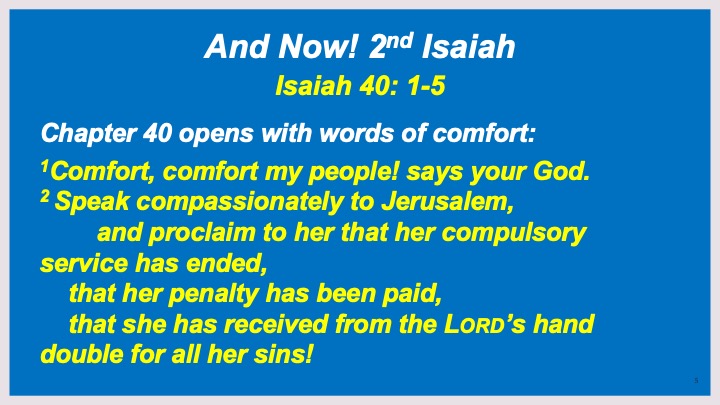
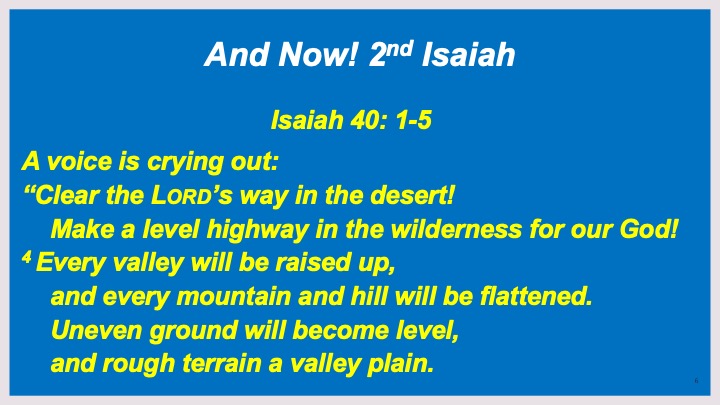
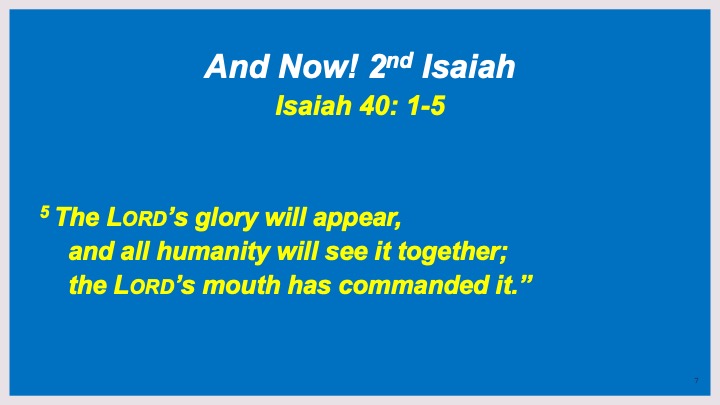
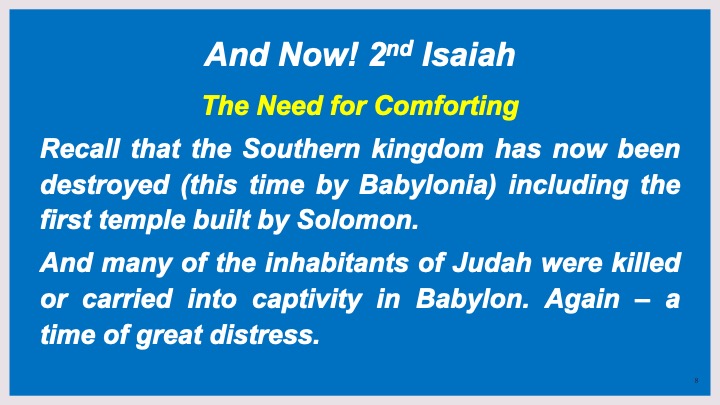
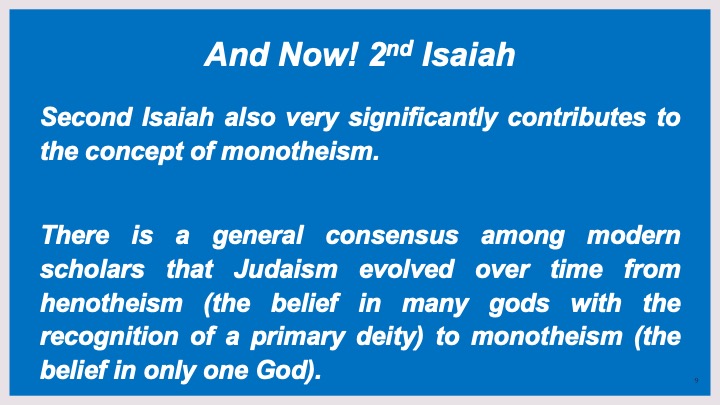
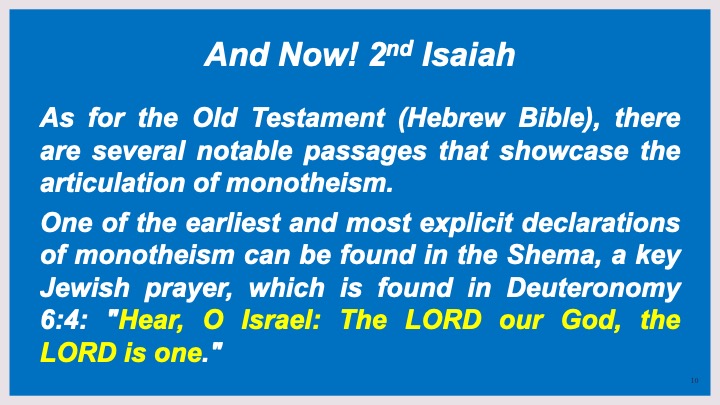
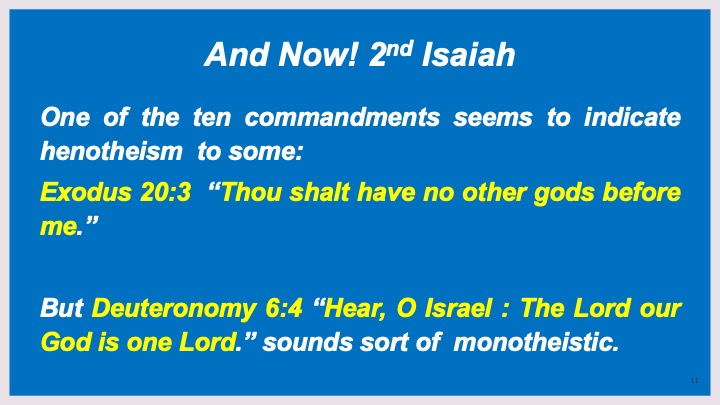
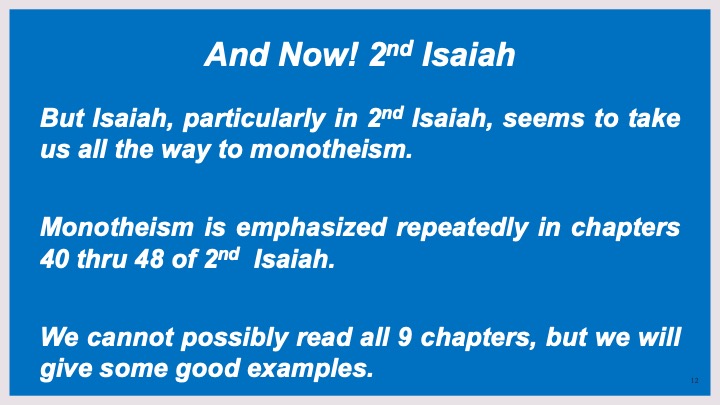
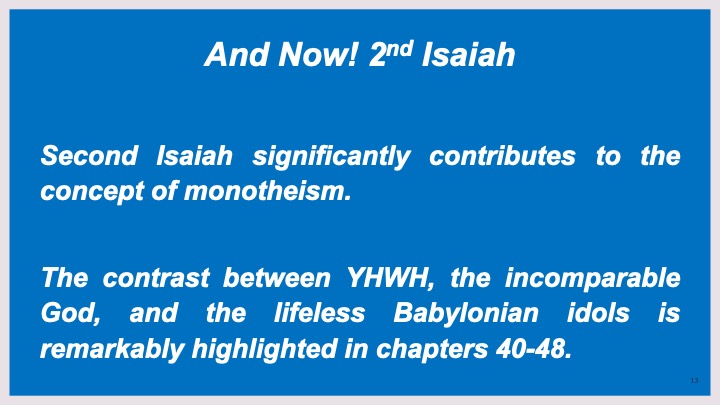
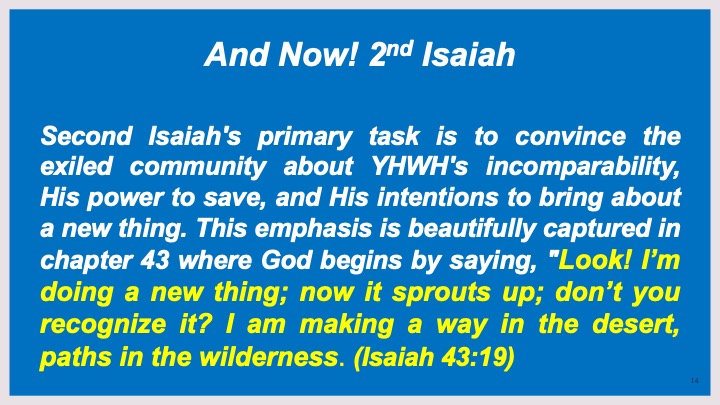
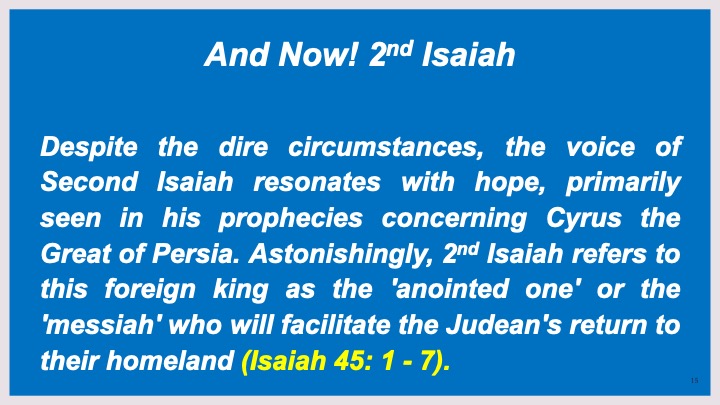
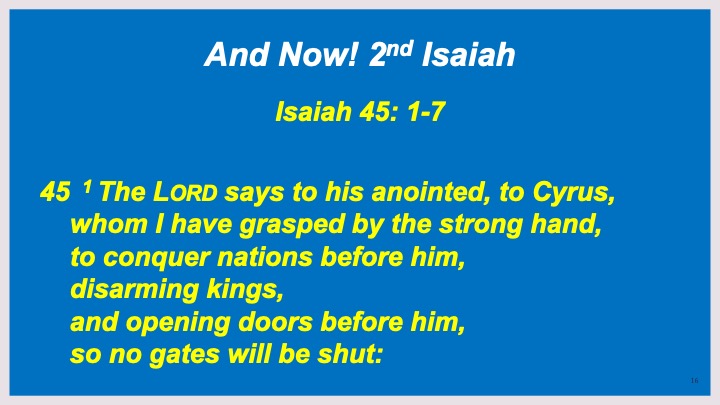
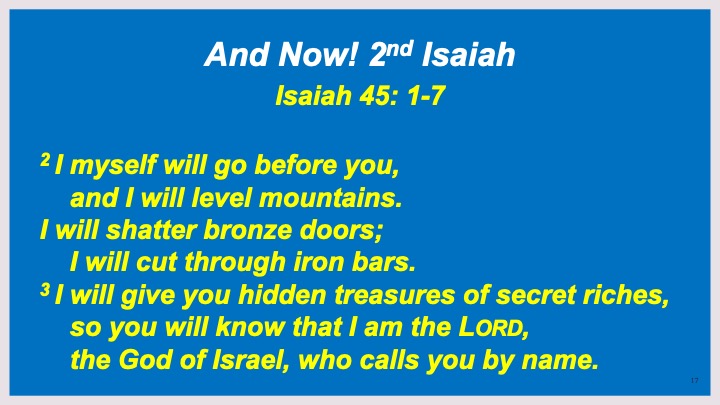
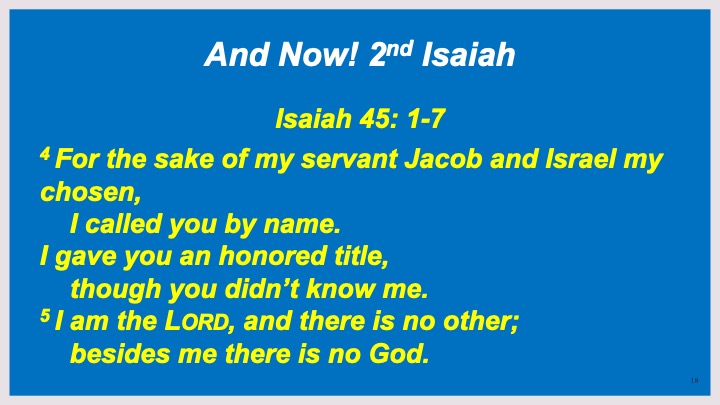
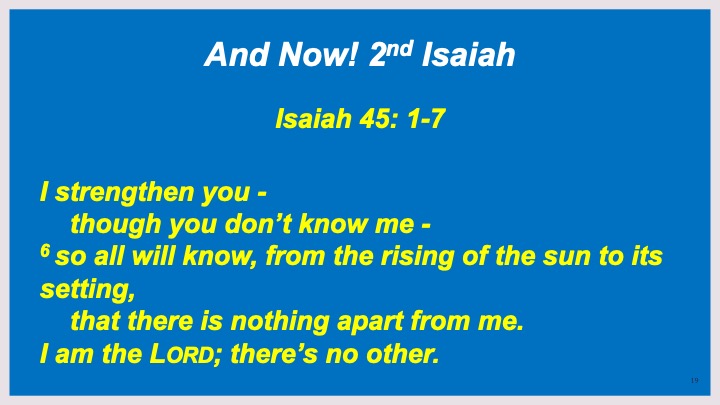
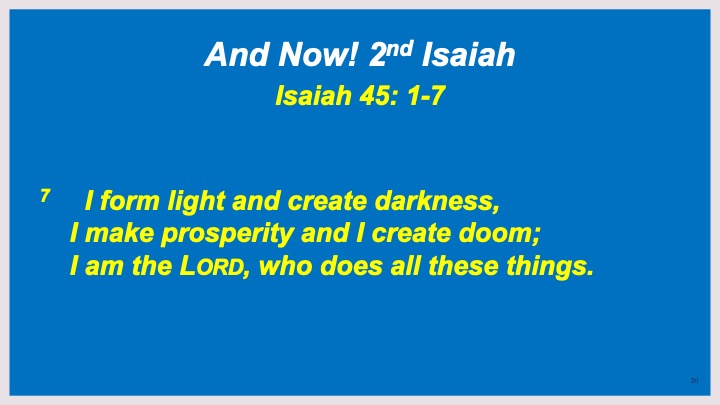
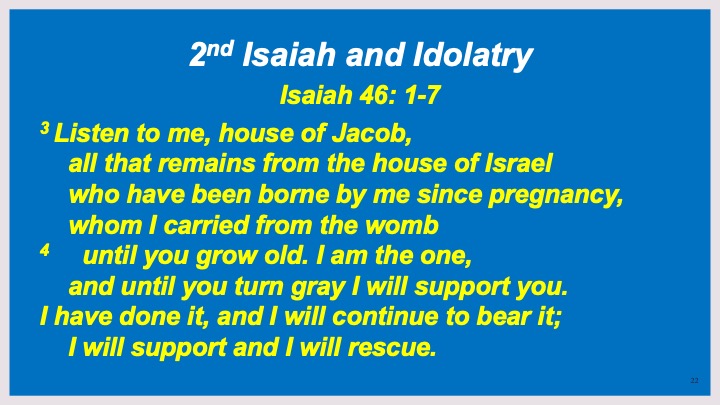
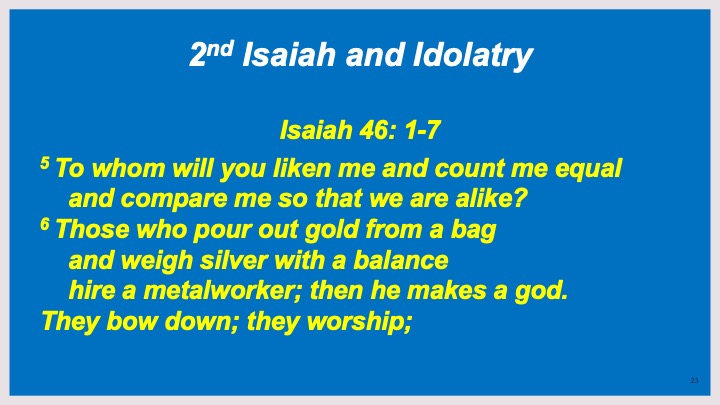
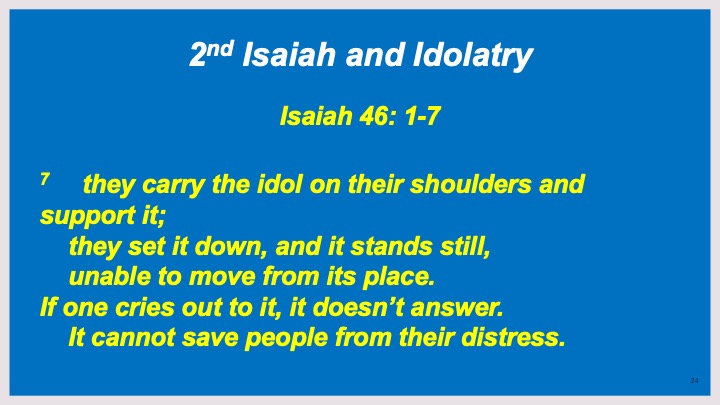
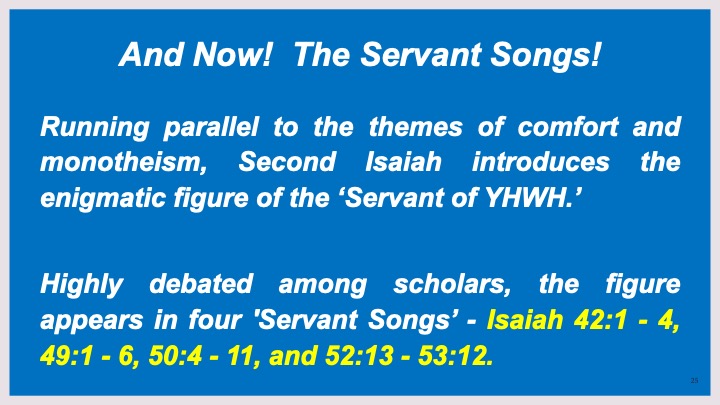
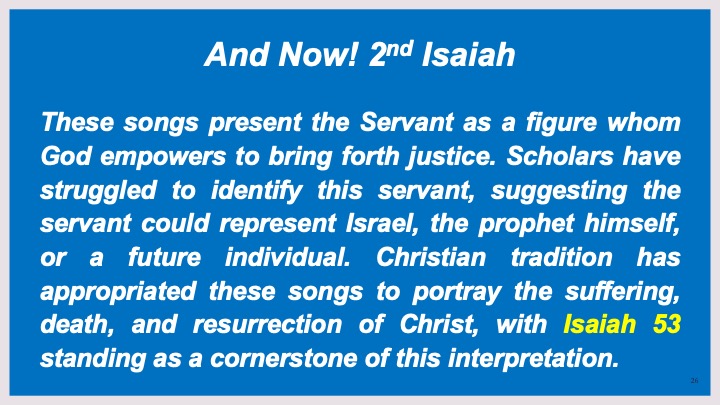
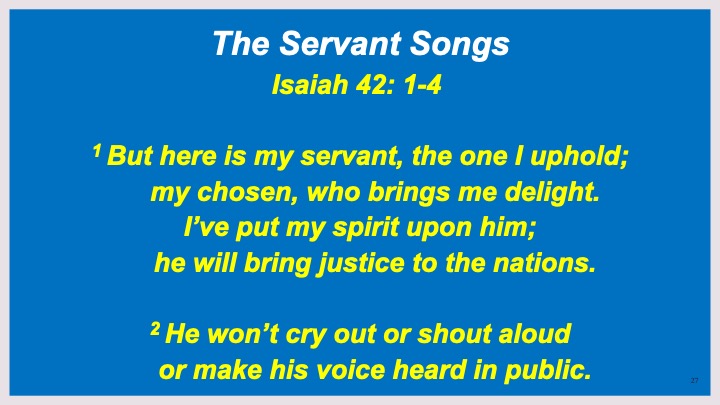


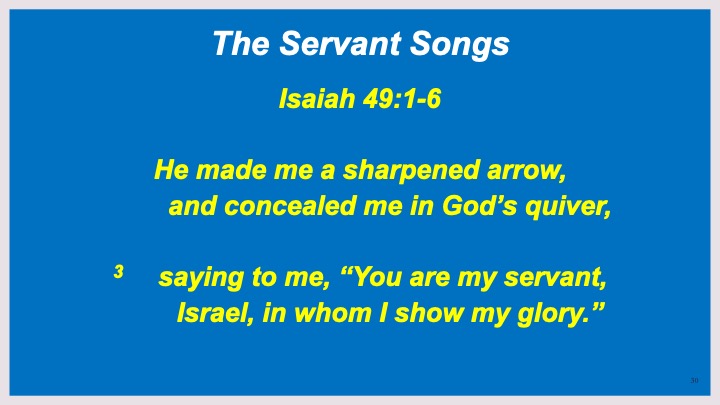
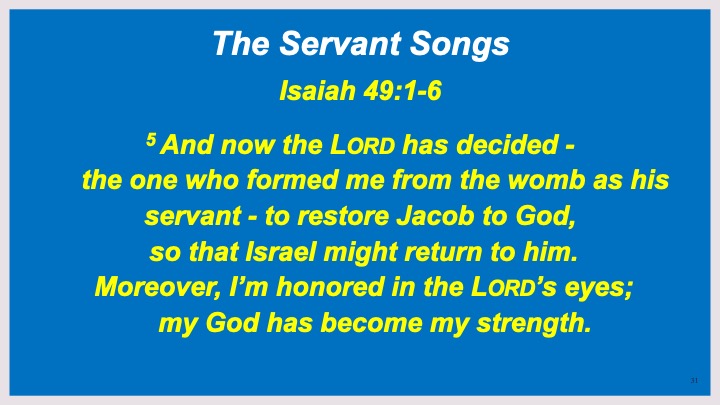
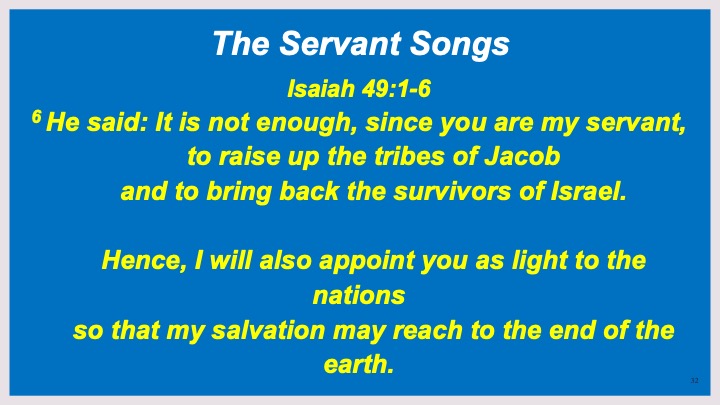
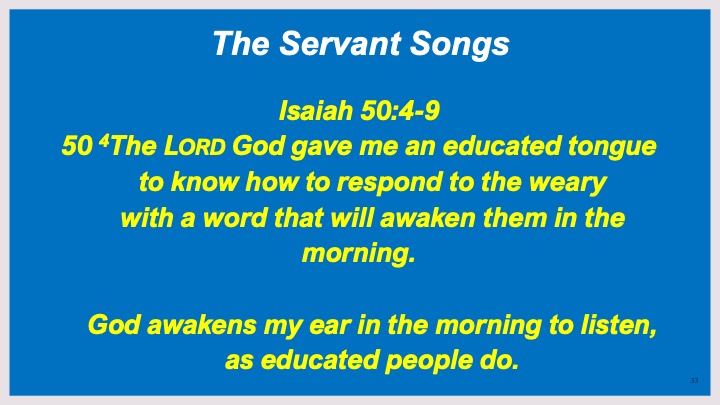
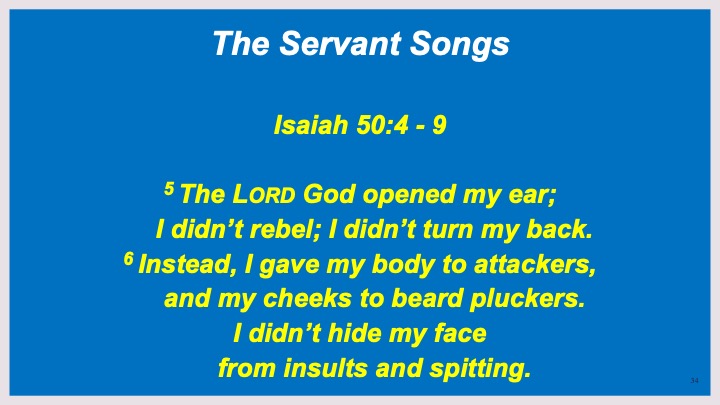
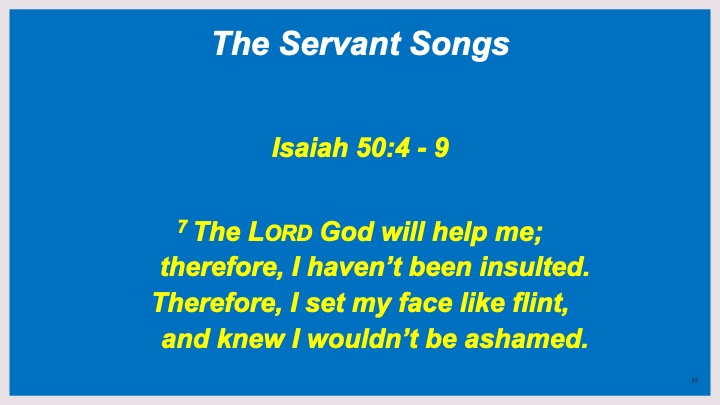
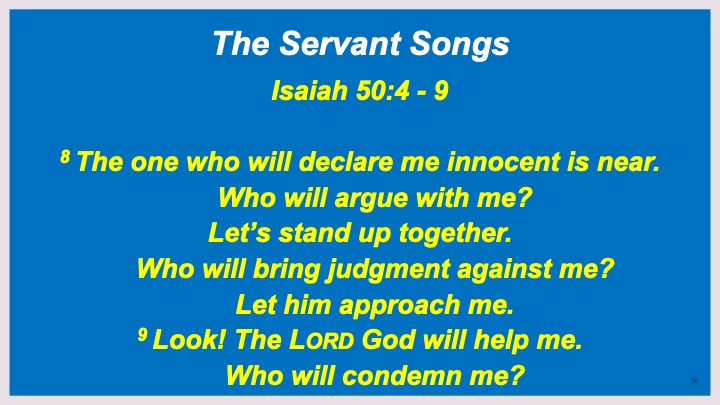
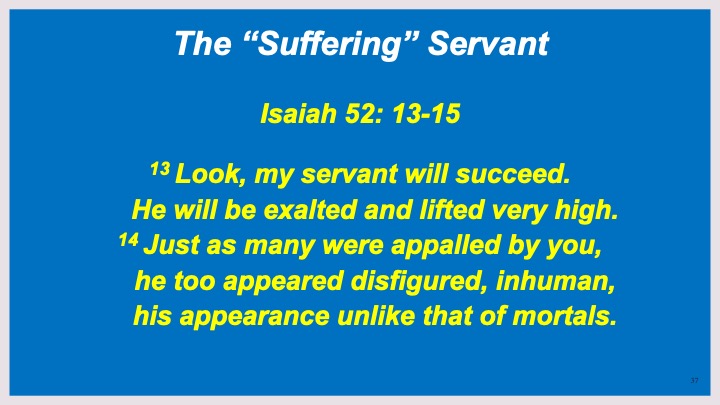
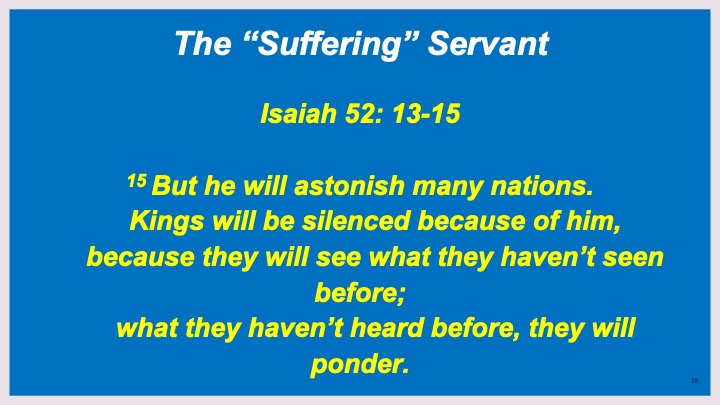
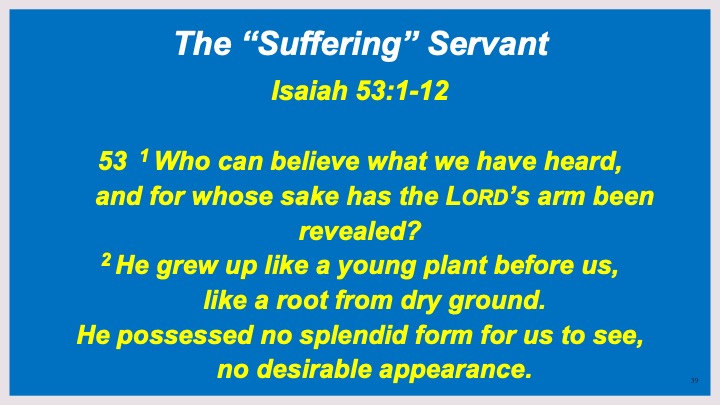
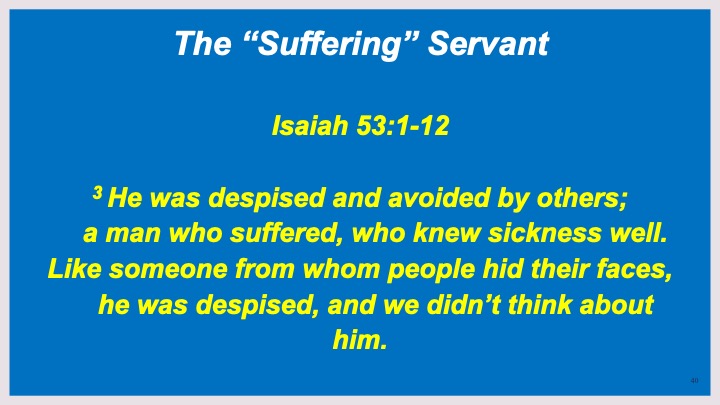
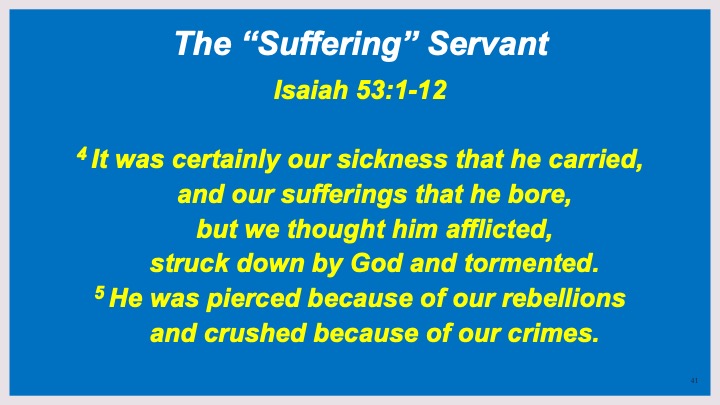
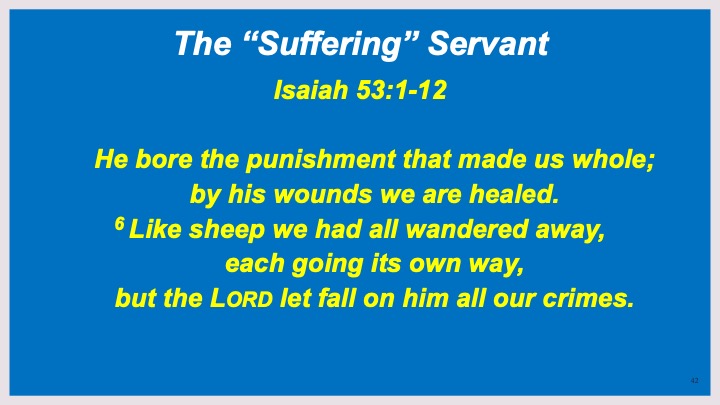


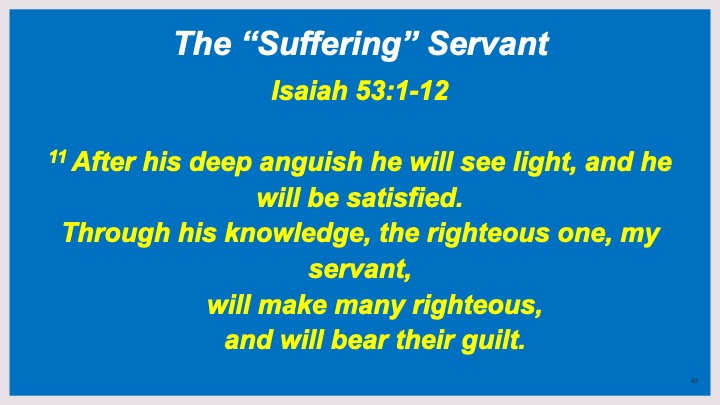







Examining Isaiah 4 Text
Examining The Book of Isaiah Part 4
Now that we have gone through a deeper dive on 1st Isaiah – let’s begin a deeper dive into 2nd Isaiah.
You will find that it is a bit different. Times have changed. The Northern kingdom has been carried off by the Assyrians – many to never return.
In exploring the mysteries and wisdom of the Bible, the Book of Isaiah holds its unique charm and theological depth. A significant shift in tone, content, and context is observed when one moves from First -Isaiah (chapters 1-39) to Second Isaiah (chapters 40 -55). To delve deeper into this is to walk the path of "Examining the Book of Isaiah," its essence, and its unique traits, specifically focusing on the chapters attributed to Second Isaiah.
Second Isaiah, unlike its predecessor First Isaiah, is set against the backdrop of Babylonian Exile. Here, the Prophet Isaiah addresses a disheartened community, inspiring hope through the promise of liberation and restoration.
The central theme of Second Isaiah is that of comfort and consolation, the advent of a new exodus authorized by YHWH himself.
Isaiah 40: 1-5
Chapter 40 opens with words of comfort:
1Comfort, comfort my people! says your God.
2 Speak compassionately to Jerusalem,
and proclaim to her that her
compulsory service has ended,
that her penalty has been paid,
that she has received from the Lord’s hand double
for all her sins!
A voice is crying out:
“Clear the Lord’s way in the desert!
Make a level highway in the wilderness for our God!
4 Every valley will be raised up,
and every mountain and hill will be flattened.
Uneven ground will become level,
and rough terrain a valley plain.
5 The Lord’s glory will appear,
and all humanity will see it together;
the Lord’s mouth has commanded it.”
The Need for Comforting
Recall that the Southern kingdom has now been destroyed (this time by Babylonia) including the first temple built by Solomon.
And many of the inhabitants of Judah were killed or carried into captivity in Babylon. Again – a time of great distress.
Second Isaiah also very significantly contributes to the concept of monotheism.
There is a general consensus among modern scholars that Judaism evolved over time from henotheism (the belief in many gods with the recognition of a primary deity) to monotheism (the belief in only one God).
As for the Old Testament (Hebrew Bible), there are several notable passages that showcase the articulation of monotheism.
One of the earliest and most explicit declarations of monotheism can be found in the Shema, a key Jewish prayer, which is found in Deuteronomy 6:4: "Hear, O Israel: The LORD our God, the LORD is one."
One of the ten commandments seems to indicate henotheism to some:
Exodus 20:3 “Thou shalt have no other gods before me.”
But Deuteronomy 6:4 “Hear, O Israel : The Lord our God is one Lord.” sounds sort of monotheistic.
But Isaiah, particularly in 2nd Isaiah, seems to take us all the way to monotheism.
Monotheism is emphasized repeatedly in chapters 40 thru 48 of 2nd Isaiah.
We cannot possibly read all 9 chapters, but we will give some good examples.
Second Isaiah significantly contributes to the concept of monotheism.
The contrast between YHWH, the incomparable God, and the lifeless Babylonian idols is remarkably highlighted in chapters 40-48.
Second Isaiah's primary task is to convince the exiled
community about YHWH's incomparability, His power to save, and His intentions
to bring about a new thing. This emphasis is beautifully captured in chapter 43
where God begins by saying, "Look! I’m doing a new thing; now it sprouts
up; don’t you recognize it? I am making a way in the desert,
paths in the wilderness. (Isaiah 43:19)
Despite the dire circumstances, the voice of Second Isaiah resonates with hope, primarily seen in his prophecies concerning Cyrus the Great of Persia. Astonishingly, 2nd Isaiah refers to this foreign king as the 'anointed one' or the 'messiah' who will facilitate the Judean's return to their homeland (Isaiah 45: 1 - 7).
Isaiah 45: 1-7
45 1 The Lord says to his
anointed, to Cyrus,
whom I have grasped by the strong hand,
to conquer nations before him,
disarming kings,
and opening doors before him,
so no gates will be shut:
2 I myself will go before you,
and I will level mountains.
I will shatter bronze doors;
I will cut through iron bars.
3 I will give you hidden treasures of secret riches,
so you will know that I am the Lord,
the God of Israel, who calls you by name.
4 For the sake of my servant Jacob and
Israel my chosen,
I called you by name.
I gave you an honored title,
though you didn’t know me.
5 I am the Lord, and there is no other;
besides me there is no God.
I strengthen you -
though you don’t know me -
6 so all will know, from the rising of the sun to its setting,
that there is nothing apart from me.
I am the Lord; there’s no other.
7 I form light
and create darkness,
I make prosperity and I create doom;
I am the Lord, who does all these things.
2nd Isaiah and Idolatry
Isaiah 46: 1-7
46 1 Bel crouches down; Nebo cowers.
Their idols sit on animals, on beasts.
The objects you once carried about
are now borne as burdens by the weary animals.
2 They crouch down and cower together.
They aren’t able to rescue the burden,
but they themselves go into captivity.
3 Listen to me, house of Jacob,
all that remains from the house of Israel
who have been borne by me since pregnancy,
whom I carried from the womb
4 until you grow old. I am the one,
and until you turn gray I will support you.
I have done it, and I will continue to bear it;
I will support and I will rescue.
5 To whom will you liken me and count
me equal
and compare me so that we are alike?
6 Those who pour out gold from a bag
and weigh silver with a balance
hire a metalworker; then he makes a god.
They bow down; they worship;
7 they carry
the idol on their shoulders and support it;
they set it down, and it stands still,
unable to move from its place.
If one cries out to it, it doesn’t answer.
It cannot save people from their distress.
And Now! The Servant Songs!
Running parallel to the themes of comfort and monotheism, Second Isaiah introduces the enigmatic figure of the ‘Servant of YHWH.’
Highly debated among scholars, the figure appears in four 'Servant Songs’ - Isaiah 42:1 - 4, 49:1 - 6, 50:4 - 11, and 52:13 - 53:12.
These songs present the Servant as a figure whom God empowers to bring forth justice. Scholars have struggled to identify this servant, suggesting the servant could represent Israel, the prophet himself, or a future individual. Christian tradition has appropriated these songs to portray the suffering, death, and resurrection of Christ, with Isaiah 53 standing as a cornerstone of this interpretation.
The Servant Songs
Isaiah 42: 1-4
1 But here is my servant, the one I uphold;
my chosen, who brings me delight.
I’ve put my spirit upon him;
he will bring justice to the nations.
2 He won’t cry out or shout aloud
or make his voice heard in public
3 He won’t break a bruised reed;
he won’t extinguish a faint wick,
but he will surely bring justice.
4 He won’t be extinguished or broken
until he has established justice in the land.
The coastlands await his teaching.
Isaiah 49:1-6
1 Listen to me, coastlands;
pay attention, peoples far away.
The Lord called me before my birth,
called my name when I was in my mother’s womb.
2 He made my mouth like a sharp sword,
and hid me in the shadow of God’s own hand.
He made me a sharpened arrow,
and concealed me in God’s
quiver,
3 saying to me, “You are my servant,
Israel, in whom I show my
glory.”
5 And now the Lord has
decided -
the one who formed me from the womb as his servant - to
restore Jacob to God,
so that Israel might return to him.
Moreover, I’m honored in the Lord’s eyes;
my God has become my strength.
6 He said: It is not enough, since you
are my servant,
to raise up the tribes of Jacob
and to bring back the survivors of Israel.
Hence, I will also appoint you as light to the nations
so that my salvation may reach to the end of the earth.
Isaiah 50:4-9
50 4The Lord God gave me an
educated tongue
to know how to respond to the weary
with a word that will awaken them in the morning.
God awakens my ear in the morning to listen,
as educated people do.
5 The Lord God opened my
ear;
I didn’t rebel; I didn’t turn my back.
6 Instead, I gave my body to attackers,
and my cheeks to beard pluckers.
I didn’t hide my face
from insults and spitting.
7 The Lord God will help me;
therefore, I haven’t been insulted.
Therefore, I set my face like flint,
and knew I wouldn’t be ashamed.
8 The one who will declare me innocent
is near.
Who will argue with me?
Let’s stand up together.
Who will bring judgment against me?
Let him approach me.
9 Look! The Lord God will help me.
Who will condemn me?
Isaiah 52: 13-15
13 Look, my servant will succeed.
He will be exalted and lifted very high.
14 Just as many were appalled by you,
he too appeared disfigured, inhuman,
his appearance unlike that of mortals.
15 But he will astonish many
nations.
Kings will be silenced because of him,
because they will see what they haven’t seen before;
what they haven’t heard before, they will ponder.
Isaiah 52: 13-15
15 But he will astonish many nations.
Kings will be silenced because of him,
because they will see what they haven’t seen before;
what they haven’t heard before, they will ponder.
Isaiah 53:1-12
53 1 Who can believe what we have
heard,
and for whose sake has the Lord’s arm been
revealed?
2 He grew up like a young plant before us,
like a root from dry ground.
He possessed no splendid form for us to see,
no desirable appearance.
3 He was despised and avoided by
others;
a man who suffered, who knew sickness well.
Like someone from whom people hid their faces,
he was despised, and we didn’t think about him.
4 It was certainly our sickness that
he carried,
and our sufferings that he bore,
but we thought him afflicted,
struck down by God and tormented.
5 He was pierced because of our rebellions
and crushed because of our crimes.
He bore the punishment that made us whole;
by his wounds we are healed.
6 Like sheep we had all wandered away,
each going its own way,
but the Lord let fall on him all our crimes.
Due to an unjust ruling, he was taken away,
and his fate - who will think about it?
He was eliminated from the land of the living,
struck dead because of my people’s rebellion.
9 His grave was among the wicked,
his tomb with evildoers,
though he had done no violence,
and had spoken nothing false.
10 But the Lord wanted to
crush him
and to make him suffer.
If his life is offered as restitution,
he will see his offspring; he will enjoy long life.
The Lord’s plans will come to fruition through
him.
11 After his deep anguish he will see
light, and he will be satisfied.
Through his knowledge, the righteous one, my servant,
will make many righteous,
and will bear their guilt.
12 Therefore, I will give him a share
with the great,
and he will divide the spoil with the strong,
in return for exposing his life to death
and being numbered with rebels,
though he carried the sin of many
and pleaded on behalf of those who rebelled.
2nd Isaiah – Commitment to Creation
Another key messages in Second Isaiah is the divine commitment to creation. Chapter 45:18 restates YHWH as the creator of the heavens and the earth, and its intention is for it to be inhabited. In a promising note, YHWH aligns the liberation of Israel with the very intention of creation itself.
Isaiah 45:18
18 For this is what the Lord said,
who created the heavens, who is God,
who formed the earth and made it,
who established it,
who didn’t create it a wasteland but formed it as a
habitation:
I, the Lord, and none other!
2nd Isaiah & Poetic Skill
The poetic skill is very high in Second - Isaiah, creating wonderful imagery that enhances his prophecies. One popular verse is the portrayal of the mountains and hills bursting into song (Isaiah 55:12), Isaiah's poetry heightens the sense of hope and anticipation in his audience.
Isaiah 55:12
12 Yes, you will go out with
celebration,
and you will be brought back in peace.
Even the mountains and the hills will burst into song before you; all the trees
of the field will clap their hands.
And Now – Next Week
You may be relieved that there is only one more week of Isaiah!
In which we will proceed to covering 3rd Isaiah! And yes – it is again a little different.
And conclude with an overview synthesis of the entire book of Isaiah.
See You Next Week !